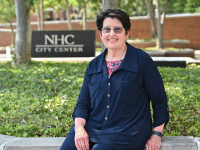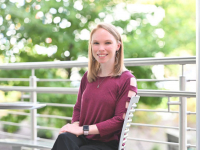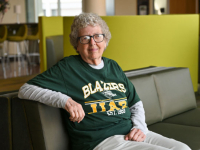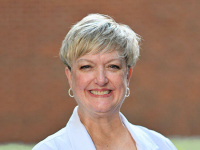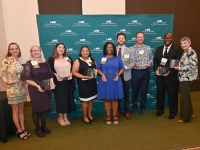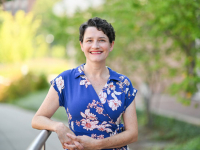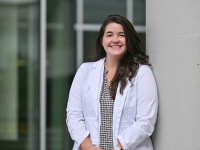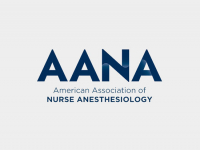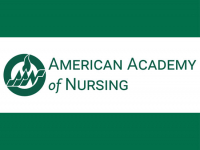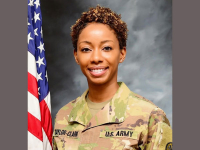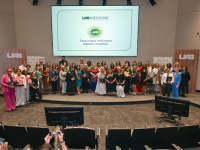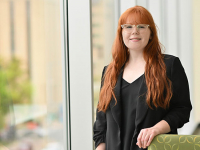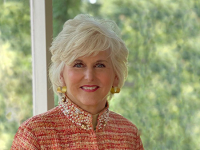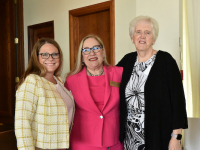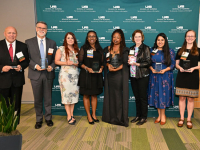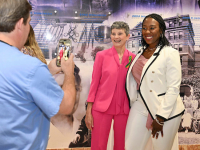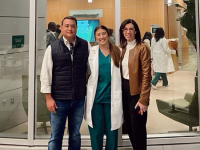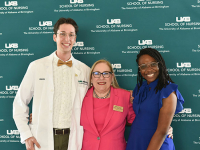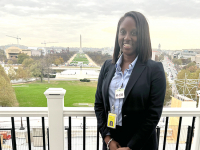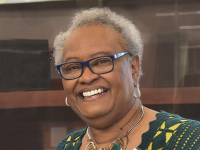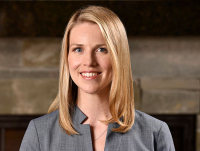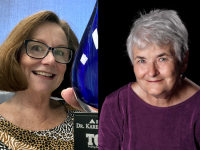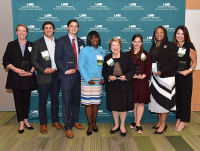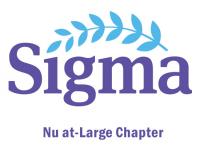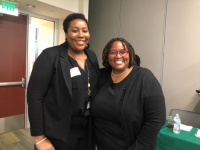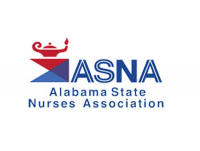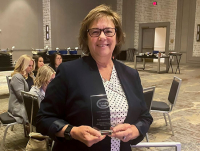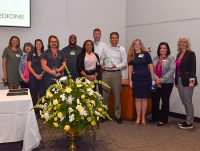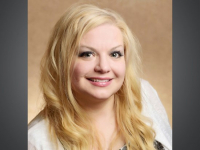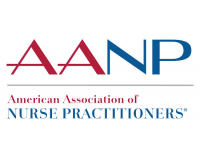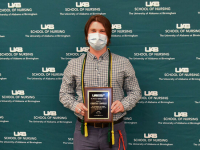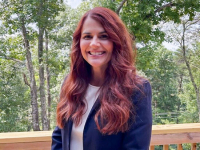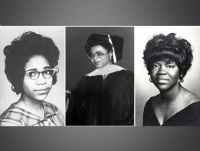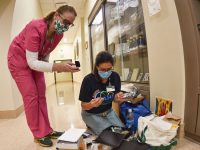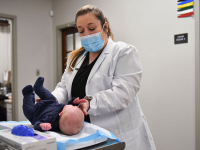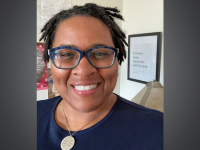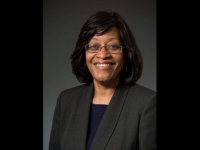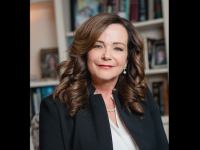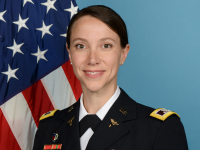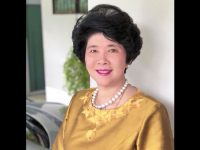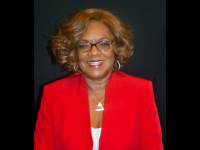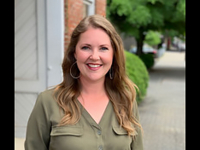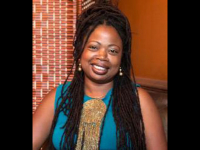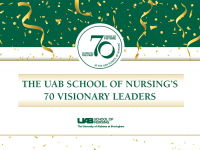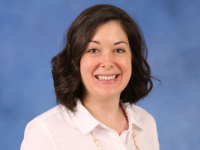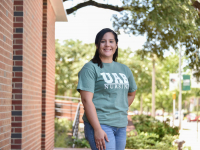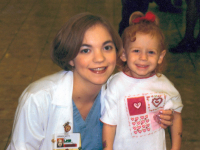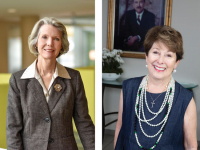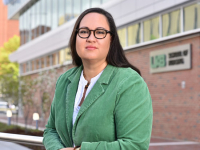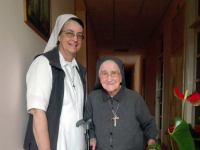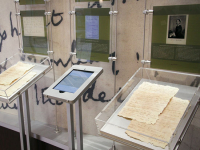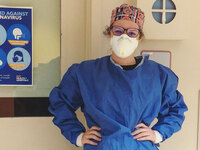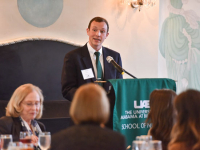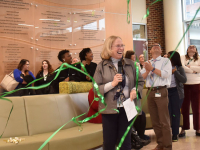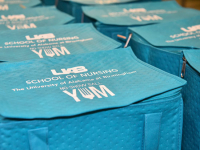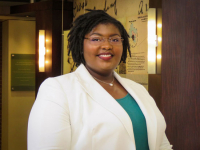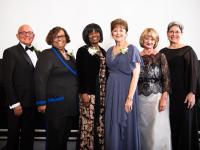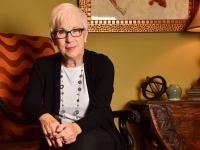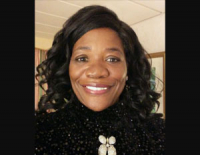Florence Nightingale is recognized worldwide as the founder of modern nursing. Besides authoring textbooks and policy papers, she wrote scores of personal letters aimed at improving the health and welfare of people throughout the world. UAB has a significant collection of these letters, as well as several other artifacts from
Nightingale’s personal life—all part of a 1958 gift to the Reynolds Historical Collection of UAB’s Lister Hill Library by Lawrence Reynolds, MD.
For decades, the collection has been preserved in the library’s archives. But now the School of Nursing has partnered with Historical Collections to develop an interactive display that will make digital reproductions of the collection available to faculty and students in nursing and other health professions, as well as to the general public. The Nightingale exhibit will be located in the lobby of the School of Nursing so that every student and guest will have an opportunity to see it.
Thanks to a gift from Board of Visitors member Arlene Henley and the Delia and John Robert Charitable Trust, an incredible collection of Nightingale’s letters has been digitized and is available full-text in an online exhibit called The Life and Letters of Florence Nightingale at www.uab.edu/reynolds/exhibits/nightingale. “The website gives context to these letters by historically informing them, making them of special value to school groups and others interested in the work and contributions of nursing’s founder,” said MICHAEL A. FLANNERY, MA, MLS, professor and associate director for historical collections. “This has been made possible through the efforts of Lister Hill Library and our colleagues at the Mervyn H. Sterne Library. Most important, however, has been our collaboration with Dean Doreen Harper and the School of Nursing. This project couldn’t have been accomplished without her enthusiastic support and her appreciation of the significance of these letters. That they are held here in Alabama makes them the crown jewels of nursing in the South and of the UAB School of Nursing.”
“To have these treasures here and not display them, not share them, not disseminate their content to the people of Alabama and, really, the world—that would be a tragic waste of historically significant insights into nursing,” said DEAN DOREEN C. HARPER, PhD, RN, FAAN.
Her passion for the project inspired BARRETT BROCK MACKAY, MSN ‘79, an active member and former Chair of the Board of Visitors. “Dean Harper told the Board about the letters and helped arrange for us to get an appointment to see them with the curator at the Reynolds Library,” said MacKay. “As I read those letters, they touched me. Florence Nightingale is the icon of nursing. And to have her letters right there in a plain little box—a real piece of her—I thought we had to find a way to share these with everyone.”
Sometime ago, MacKay’s parents established The Harry B. and Jane H. Brock Foundation, which donated the seed money to launch the Nightingale exhibit at the School of Nursing. Over the years, MacKay explained, members of her family have developed special interests in a variety of educational and community service projects in Birmingham. The Nightingale exhibit, she said, was particularly special. “If I’m passionate about something, if I think it’s worthwhile, they‘ll always be supportive,” MacKay said. “As a family, we’re all on board for each other.” In fact, their interest has been so great that Barrett and her husband, Rick, have also invested personally in the project and encourage others to, as well.
The Nightingale collection includes a newspaper clipping, a photograph of Nightingale, a print from a painting of her, and 50 letters written by her from 1853 to 1903. During much of that time, she was in poor health but, through her letters and other writings, she continued to advocate for improving public health conditions in India. Nightingale had begun her nursing career during the Crimean War, attending British troops in Turkey, where soldiers were comforted by her solitary night rounds and began calling her “Lady with the Lamp.” Nightingale was a steadfast advocate for good hygiene, sanitation, and nutrition—not just in British army hospitals but wherever she saw the need.
The Nightingale Collection at UAB opens a window on the latter part of Nightingale’s life and offers many lessons on policy, advocacy, and public health, as well as nursing. Her prolific writing came, in part, from a desire to develop data-driven policy changes to improve healthcare worldwide. “I think this collection will be a wonderful tool for students,” said MacKay, who remembers studying Nightingale as a nursing student at UAB. “Nightingale was a visionary pioneer, and the amazing work that she did 100 years ago is still relevant today. Her letters will teach and inspire anyone who reads them—especially nursing students.”
UAB’s exhibit will give students an opportunity to explore evidence-based practice as it was first defined over a century ago and discover the links between the past, present, and future of modern nursing. Also, as one of only seven World Health Organization Collaborating Centers in the U.S., the School of Nursing will use the exhibit to advocate for global health.
“We are so very thankful for the generous support of donors like Barrett and her family, who are making the exhibit project possible,” said Senior Director of Development Jeannie Horton. “This is a significant piece of history that we’re honored to share with the world. The Nightingale exhibit will allow us to give students of all ages a wonderful hands-on learning experience and keep an important piece of history alive.”
Construction will begin summer 2012, with plans for a fall 2012 opening. Donors may sponsor an individual Nightingale letter or group of letters, or they can make a general gift to support the overall project. For more information, contact Jeannie Horton at (205) 975.2443; e-mail jhorton@uab.edu; or visit www.uab.edu/nursing and click “Donate Now.”



